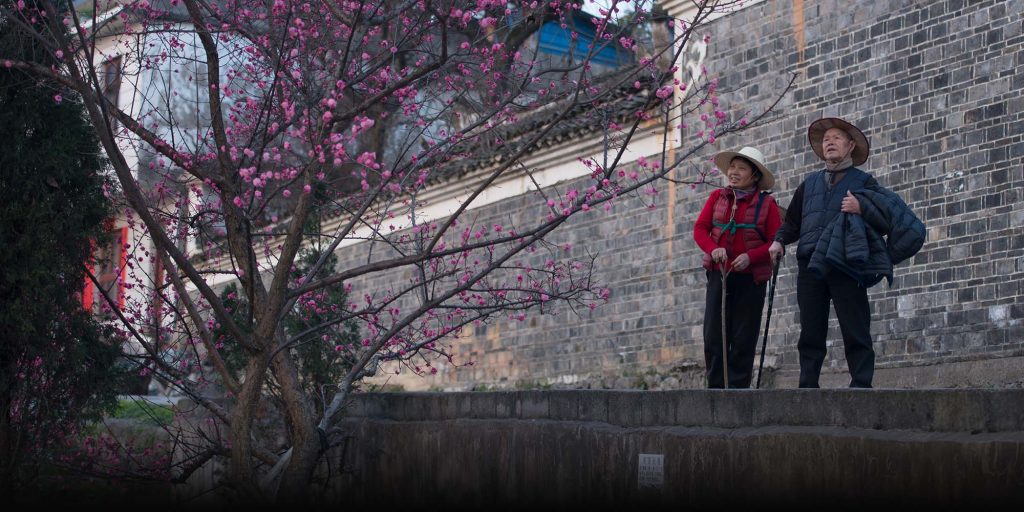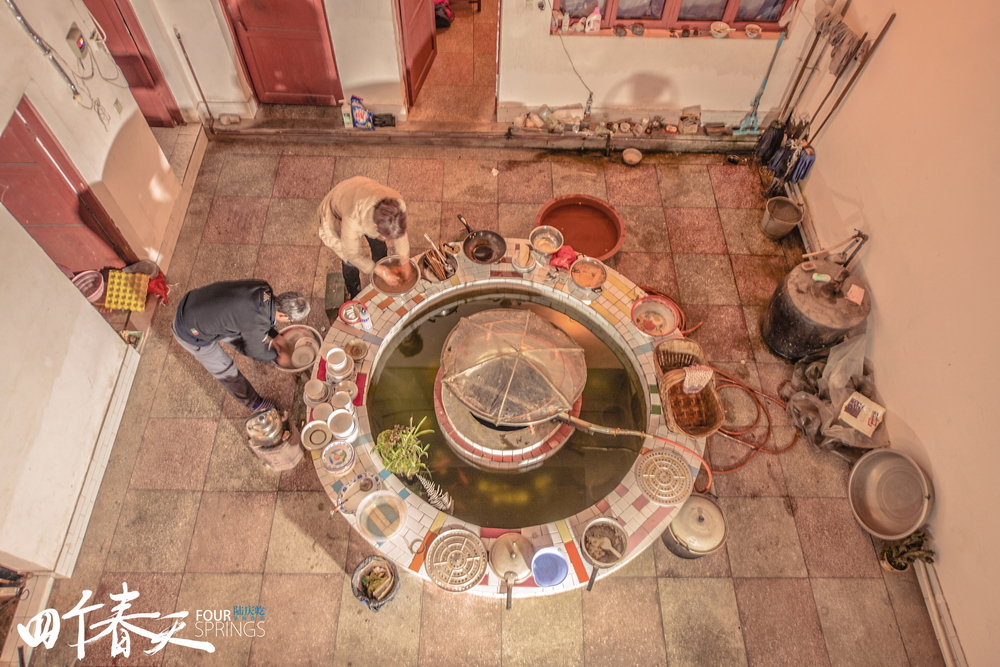Filmmaker Lu Qingyi discusses ‘Four Springs,’ his award-winning documentary charting the fortunes of his own family across multiple Lunar New Year holidays.
In 1989, Lu Qingyi left his home in Dushan, a remote county in southwestern China, and traveled more than 2,000 kilometers to start a new life as a migrant worker in Beijing. He was 15 years old.
Over the next 30 years, Lu worked all kinds of jobs. He dabbled in advertising, publishing, and photography. He spent time on a crystal mine in his home province of Guizhou, and even had a brief career as a soccer player.
Like many of China’s 288 million urban migrants, he only got to see his parents during Spring Festival — when the whole country rushes home to celebrate Lunar New Year with their families.
The weeklong holiday is the most important festival of the year in China. But for Lu’s family, it was always particularly special: not only for the traditions — the big meal, the couplets on red paper scrolls, the tributes to ancestors — but above all, the music.
In Dushan, culture is at the center of local life. “It’s the arts that make people noble; those who don’t entertain themselves are just dumbbells,” run the lyrics of a Dushan folk song.
Lu’s mother, Li Guixian, is the lead singer of the household, a free spirit who sees the funny side of everything. She is often accompanied by Lu’s father, Yunkun, who plays a variety of musical instruments that he made himself, including a DIY musical saw.
Despite being separated for nearly the entire year, the impromptu performances helped the family feel as though they’d never been apart.
By 2012, however, Lu’s parents were in their 80s, and Lu became increasingly aware of how quickly time was passing. He decided to create a digital album collecting photos that he’d taken during his visits home over the years. He posted the album, titled “Homecoming,” to the popular website Douban.
To Lu’s surprise, the photos generated an enthusiastic response. Users praised his ability to capture the humor and tenderness of everyday scenes in his hometown. Some even reacted by sharing sausage-making recipes from their native regions, after seeing images of Lu’s father making the snack.
The positive experience inspired Lu to launch a more ambitious project, which would propel him to cult status as a writer and filmmaker. For the next four years, he furiously documented his Spring Festival stays in Dushan, shooting videos of small town life, creating more photography albums, and writing essays about his experiences.
Lu almost abandoned the project during the third year, after his older sister — Qingwei — died of lung cancer. But his mother convinced him to pick his camera back up and carry on shooting.
In 2016 and 2017, the 46-year-old edited the footage he’d taken over the previous four Lunar New Years, interspersing it with home videos from as far back as the ’90s.
The finished film was released under the title “Four Springs.” It was nominated for Best Documentary and Best Film Editing at the 2018 Golden Horse Film Festival and won the Best Documentary award at the 2018 FIRST International Film Festival.
In January 2019, “Four Springs” went on general release in the Chinese mainland — a rare honor for a documentary film about an ordinary family. Though the box office takings of 10.5 million yuan ($1.5 million) was disappointing — in Lu’s words, the film hasn’t chuquan, or gone mainstream — it has received nearly 100,000 ratings on Douban with an average score of 8.9 out of 10, making it a cultural phenomenon.
For the many Chinese migrants who left positive reviews, Lu’s work presents a familiar and heartwarming version of a simpler life that they left behind in search of opportunities in the city. Continue to read the director’s story here.
– This article originally appeared on Sixth Tone.








